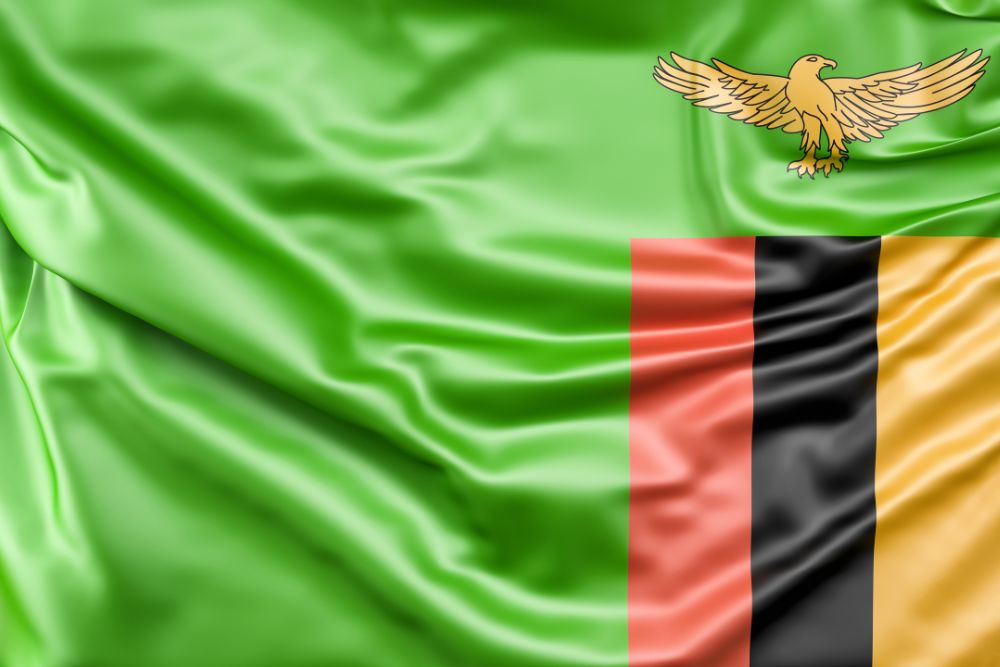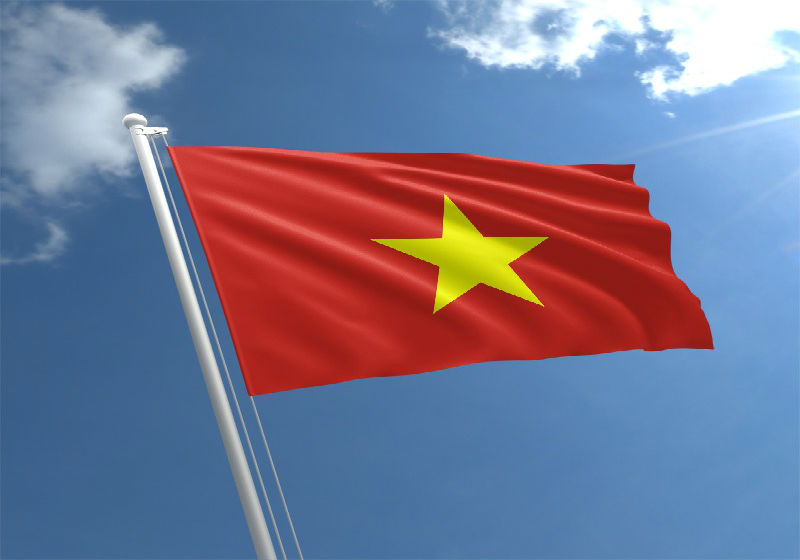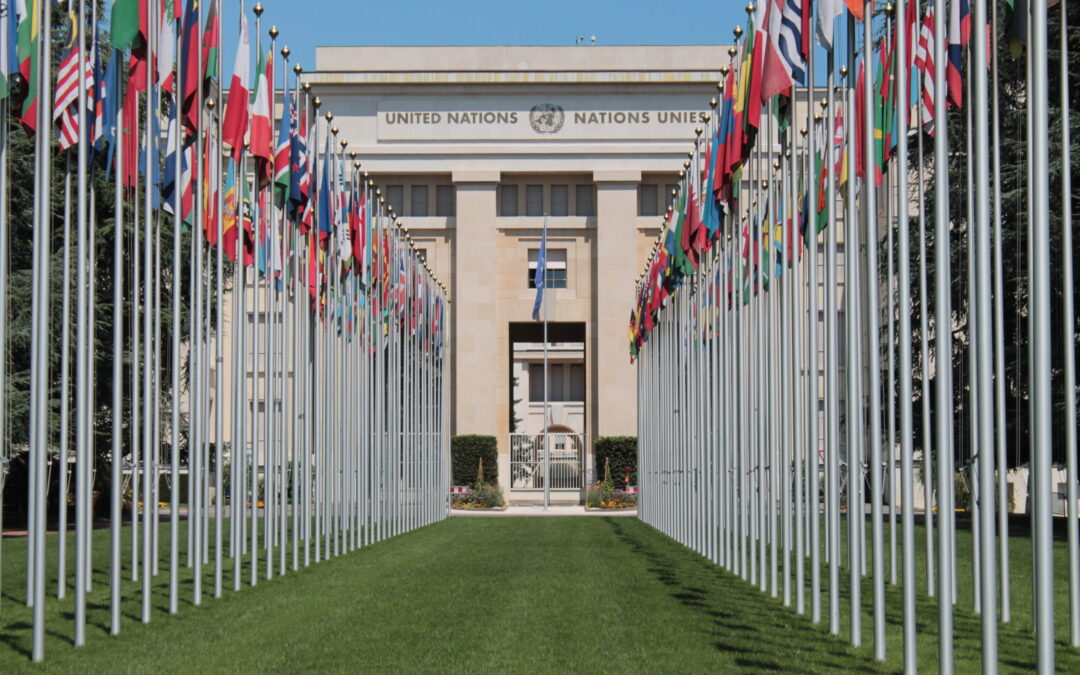
ICJ makes a submission on killings of LGBTIQ+ persons in response to a call by the UN Special Rapporteur on extrajudicial, summary or arbitrary executions
On 6 June, the International Commission of Jurists (ICJ) made a submission on the killing of LGBTIQ+ persons, in response to a call for inputs by the UN Special Rapporteur on extrajudicial, summary or arbitrary executions.

Zambia: Joint submission to the UN Committee on the Rights of Persons with Disabilities outlines key human rights concerns
The International Commission of Jurists – in collaboration with the Mental Health Users Network of Zambia (MHUNZA), Disability Rights Watch (DRW), the Southern Africa Litigation Centre and the Validity Foundation – have made a joint submission to the UN Committee on the Rights of Persons with Disabilities (the Committee), ahead of the examination Zambia’s initial report under article 35 of the UN Convention on the Rights of Persons with Disabilities (CRPD) on 6 and 7 March 2024.

Vietnam: ICJ makes a submission to the UN Human Rights Committee
On 14 December 2023, the International Commission of Jurists (ICJ) filed a submission for the preparation by the UN Human Rights Committee of a List of Issues (LOI) for the examination of Viet Nam’s fourth periodic report under the International Covenant on Civil and Political Rights (ICCPR).
During its 140th session, from 4 to 28 March 2024, the Human Rights Committee will prepare and adopt a LOI featuring a number of questions addressed to the State party.
Once adopted, the LOI will be transmitted to the State party. Replies to the LOIs are to be provided in writing before the dialogue between the Committee and Viet Nam’s delegation that will take place during the Committee’s review of the State party’s implementation of and compliance with the provisions of the ICCPR at a forthcoming session of the Committee.
The ICJ’s submission to the Committee highlights a number of ongoing human rights concerns with respect to the country’s implementation of and compliance with the provisions of the ICCPR, which are not adequately addressed in State’s report.
In addition, the submission formulates certain questions and recommends that the Committee should include them in its LOI and address them to the Government of Viet Nam, including on the following pressing human rights concerns:
- The right to freedom of expression and information and to privacy (articles 19 and 17);
- The death penalty (articles 6 and 7);
- The independence of the judiciary and the right to a fair trial (article 14); and
- The right to an effective remedy (article 2(3)).
The submission is available in PDF here.

Cambodia: ICJ makes two submissions to the Universal Periodic Review
On 11 October 2023, the International Commission of Jurists (ICJ) made two submissions to the UN Human Rights Council’s Working Group on the Universal Periodic Review (UPR) in advance of its review of Cambodia’s human rights record in April – May next year.
In its first submission, the ICJ draws the attention of the Human Rights Council’s Working Group on the UPR to a number of serious human rights concerns in Cambodia in connection with:
- Freedom of expression; and
- The independence of the judiciary and the right to a fair trial.
In addition, in its first submission, the ICJ calls upon the Working Group and the Human Rights Council to make the following recommendations to the Cambodian authorities:
On freedom of expression
- The legislature should repeal or substantially amend legal provisions that unduly restrict the right to freedom of expression – including article 443, 453, 494 and 495 of the Penal Code and the NIG Sub-Decree – to bring them in line with international human rights law and general principles of criminal law; the proposed draft Cybercrime Law and Cybersecurity Law should be withdrawn;
- The prosecuting authorities and the judiciary should immediately cease ongoing criminal investigations, drop all existing charges and revoke or otherwise reverse criminal penalties imposed against individuals for “offences” under domestic provisions that are inconsistent with Cambodia’s obligations under international human rights law guaranteeing the rights to freedom of expression and information and under general principles of criminal law; and
- Rescind the revocation of licences and access-blocking of independent media outlets that have been carried out arbitrarily without a thorough and transparent process, and refrain from imposing any further restrictions unless the revocation or blocking decision has been undertaken following a full analysis that applies international standards concerning legality, legitimate purpose, necessity, proportionality and non-discrimination, and has been authorized pursuant to an order by an independent and impartial judicial authority, in accordance with due process, and ensuring that there is a right to appeal against it.
On the independence of the judiciary and fair trial
- Safeguard, in law and in practice, the full independence and impartiality of judges and prosecutors from any form of political pressure and undue influence, including by amending the Law on the Organization of the Courts, the Law on the Statute of Judges and Prosecutors, and the Law on the Organization and Functioning of the Supreme Council of the Magistracy, with the aim to eliminating executive influence on the administration and functioning of the judiciary; and
- Ensure that fair trial rights are fully respected at both the investigation and trial stages in compliance with international law and standards, including the right to a public hearing, the right to defend themselves, the right to equality of arms, the presumption of innocence and the right to a public and reasoned judgment, all of which are rights guaranteed, inter alia, under the ICCPR.
The first submission on freedom of expression, independence of the judiciary and fair trial can be downloaded here.
In its second submission, made jointly with Land Watch Thai, the ICJ draws the attention of the Human Rights Council’s Working Group on the UPR to human rights violations and abuses in the context of and resulting from the establishment and development of Special Economic Zones (SEZs) in Cambodia.
In its second submission, the ICJ and Land Watch Thai call upon the Working Group and the Human Rights Council to make the following recommendations to the Cambodian authorities:
- Adopt a human rights-based approach to development projects, such as SEZs, grounded in processes and safeguards to ensure that decisions about those projects are made with adequate and meaningful consultations and genuine participation of the individuals and communities concerned, including the free, prior and informed consent of indigenous peoples, in compliance with the requirements of international law and standards;
- Ensure that business entities operating in or domiciled in Cambodia systematically conduct consultations and carry out human rights due diligence, including independent environmental impact assessments, to prevent and/or mitigate the risks of negative impacts of their operations on the exercise of human rights;
- Adopt a national action plan on business and human rights while ensuring that both the formulation and implementation processes involve all interested parties, including representatives of businesses, CSOs, indigenous peoples and the most affected communities;
- Ensure transparency by making information and documents related to large development projects, such as the SEZs, publicly available;
- Ensure that legislation protecting labour rights is effectively applied to all sectors and all workers, including by addressing the practice of engaging in short-term employment contracts as a means of bypassing various social protection laws or restricting union activities by employers;
- Ensure that workers, including in the context of SEZs, enjoy the right to just and favourable conditions of work as guaranteed by international law, and urgently investigate, prosecute, and address reports of human trafficking and forced labour in SEZs;
- Ensure that the minimum wage is applied to all sectors of the labour market and that all workers receive a minimum wage that enables them to enjoy a decent standard of living for themselves and their families;
- Ensure that all workers are able to exercise their right to freedom of association and collective bargaining without undue restrictions, intimidation, violence, harassment, or risk to their personal security or lives, as well as address barriers to registering and joining unions. To this end, revise the 2016 Trade Union Law to ensure compliance with international labour law and standards;
- Ensure that evictions are only carried out as a last resort after all other feasible alternatives have been explored, including in the context of SEZs. Procedural protections required under international human rights law should be in place before any evictions are carried out, in particular, requirements on genuine consultation, due process safeguards, provision of legal remedies, compensation and adequate alternative housing. Such protections should also be explicitly guaranteed in the Land Law and the Anukret (Sub-Degree) No. 148, as well as other domestic legal and institutional frameworks to prevent forced evictions; and
- Ensure that effective, prompt and accessible judicial and non-judicial remedies are provided to those who are affected by the implementation of large development projects, including SEZs.
The second submission on SEZs can be downloaded here.




